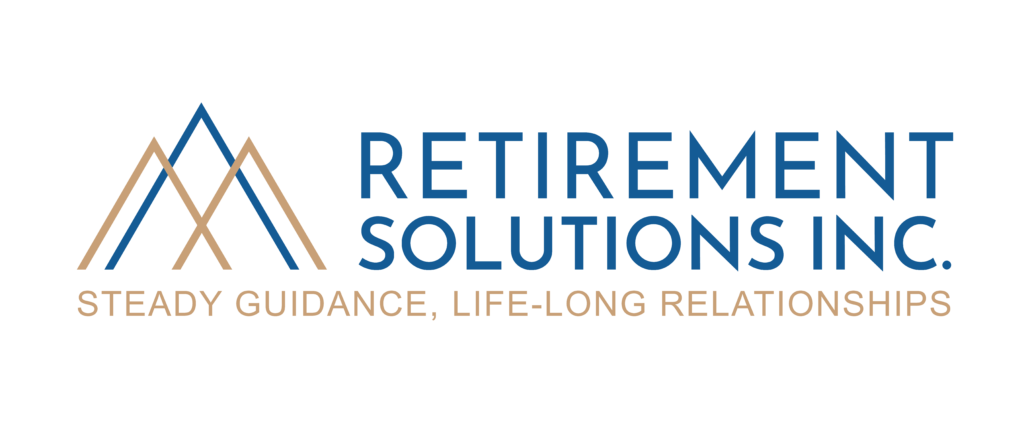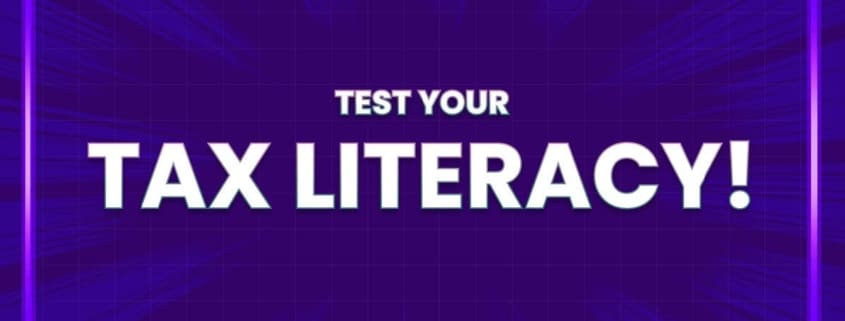Do You Know More About Taxes Than “Average” Americans?
What do you really know about taxes?
How familiar are you with the basics? What about the intricacies?
It’s no secret most of us aren’t tax pros.
Many of us have some pretty big knowledge gaps when it comes to key tax issues, like different tax brackets, charitable giving, and tax liabilities. 1
And that gap can interfere with our everyday financial decisions.
It can also affect how we feel about taxes and how we handle them. 2
So, do you know as much as the next taxpayer? More importantly, do you know all you should about taxes?
Let’s find out – take the short quiz now to see if you’re ahead of the curve!
Take the 2 Minute Quiz
- How much of the federal government’s revenue is expected to come from personal income taxes in 2023?
- 51%
- 86%
- 66%
- 74%
Answer: 51% The federal government’s fiscal year runs from October to September. During FY 2023 (October 1, 2022 – September 30, 2023), about half of the federal government’s funding is expected to come from personal income taxes. About 49% – or approximately $289billion! 3
2. True or False: I can take the standard deduction if I itemize my tax deductions.
Answer: FALSE – The standard deduction isn’t available to certain taxpayers. You can’t take the standard deduction if you itemize your deductions. 5 That said, the standard deduction has been increased in 2023 – to $27,700 for married couples filing jointly and $13,850 for single taxpayers. 6
3. Which strategy will NOT reduce your tax bill?
a. Donating to charity
b. Selling taxable investments at a loss
c. Filing for a tax extension
d. Making contributions to per tax retirement plans
Answer: c – Filing for a tax extension. While filing an extension can give you more time to prepare and file your tax return, it may not change or reduce those obligations (unless you use that extra time to exercise options that could reduce your tax bill. 4
4. True or False: Tax brackets will stay the same in 2023 as they were in 2022
Answer: FALSE – The IRS has released higher federal tax brackets for 2023 to adjust for inflation. The top tax rate remains 37% for taxpayers with income over $578,125 ($89,750 for married couples filing jointly), but the other tax rates have been raised for 2023 to reduce the burden of inflation. 6
5. How long does it take the IRS to issue tax refunds?
a. 31 days
b. 21 days
c. 61 days
d. 90+ days
Answer: b – 21 days. The IRS issues most refunds in less than 21 days. However, the IRS (and I!) caution against relying on receiving federal tax refunds by a certain date, especially when making major purchases or paying bills. Some returns may require additional review, especially if the IRS flags errors, possible identity theft, or potential fraud. 7
6. True or False: The IRS will text or email me regarding tax delinquency or to verify certain information?
Answer: FALSE – According to the IRS, it “does not initiate contact with taxpayers by email to request personal or financial information. The IRS initiates most contact through regular mail. 8 Generally, if the IRS needs more information or if you’re delinquent on your taxes, you’ll receive a letter (or several letters over time). Though it rarely reaches out by phone, the IRS may call you for certain types of tax delinquency issues. Watch out for scams like texts threatening to “suspend” your Social Security number or emails that us urgent stories related to the COVID-19 pandemic to try to get you to open a link or attachment.9
7. After I file my taxes, I should keep my tax returns and supporting documents.
a. Until I get my tax refund
b. For at least 1 year
c. Until I file next year’s taxes
d. For at least 3 years
e. For at least 5 years
Answer: d – for at least 3 years. Retaining tax returns and supporting documents for at least 3 years is recommended. Keeping your tax documents allows you to use previous year’s information on the currents year’s forms – eliminating unnecessary calculations! This information is also crucial in case of an audit.4
FINANCIAL LESSON:
It’s OK no to know everything about taxes, But…
Growing Your Tax Knowledge Can Be Fruitful in the Future
How’d you do on the quiz?
Are you surprised by what you know? Or what you don’t know?
No matter which answers you got right or wrong, you probably need to know A LOT more than the basics at tax time — and it’s never too late to learn more.
Getting better at navigating all sorts of tax matters can mean reducing your risks and discovering better tax strategies.2
Beyond compliance, improving your tax literacy can also pay off in the big picture.
How?
It could help you make better decisions before, during, and after tax time, and it could result in better financial performance in the long run.2, 10
That’s not the end of the growth, though.
Why?
Because learning about taxes isn’t a one-and-done deal.
One quiz doesn’t cover it all. (Neither can the most intensive college-level course, for that matter!)
Plus, tax codes, deadlines, forms, and so much more are constantly evolving. That can make today’s facts about taxes misleading fictions months or years down the line.
So, how can you keep it all straight and make the right moves?
Start by recognizing what you don’t know and realizing that it’s OK to not know everything about taxes.
It also helps if you’re open to expanding your knowledge. And if you know who you can turn to and lean on when you need some tax advice or guidance — someone who can apply general tax facts to your specific situation.
Scott A. Chelberg, CFP®
President, Retirement Solutions, Inc.
Wealth Manager
SagePoint Financial, Inc.
CA Insurance License 0694123
5857 Owens Avenue, Suite 110
Carlsbad, CA 92008
ph: 760-603-0700
Sources
2. https://innovation-entrepreneurship.springeropen.com/articles/10.1186/s13731-020-00142-4
4. https://www.cnbc.com/2020/07/07/do-you-understand-how-taxes-work-test-your-knowledge.html
5. https://www.irs.gov/taxtopics/tc551
6. https://www.cnbc.com/2022/10/19/irs-here-are-the-new-income-tax-brackets-for-2023.html
7. https://www.irs.gov/newsroom/get-ready-for-taxes-whats-new-and-what-to-consider-when-filing-in-2023
9. https://www.irs.gov/newsroom/tax-scams-consumer-alerts
10. https://corporatefinanceinstitute.com/resources/management/financial-literacy/
Risk Disclosure: Investing involves risk including the potential loss of principal. No investment strategy can guarantee a profit or protect against loss in periods of declining values. Past performance does not guarantee future results.
This material is for information purposes only and is not intended as an offer or solicitation with respect to the purchase or sale of any security. The content is developed from sources believed to be providing accurate information; no warranty, expressed or implied, is made regarding accuracy, adequacy, completeness, legality, reliability, or usefulness of any information. Consult your financial professional before making any investment decision. For illustrative use only.
This information is not intended to be a substitute for specific individualized tax advice. We suggest that you discuss your specific tax issues with a qualified tax professional.
This is a test disclosure for testing purposes only. This is a test disclosure for testing purposes only. This is a test disclosure for testing purposes only. This is a test disclosure for testing purposes only. This is a test disclosure for testing purposes only. This is a test disclosure for testing purposes only. This is a test disclosure for testing purposes only.




